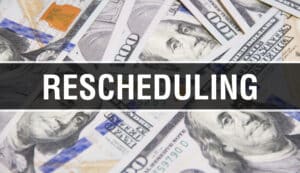
Minnesota’s Venture into Government Run Cannabis Retail: Opportunities and Hurdles
Soon, Minnesota may set the standard by becoming the first state to permit counties and localities to establish their own cannabis dispensaries in over ten years. This potential is a result of a particular clause that allows local governments to establish and oversee their own cannabis shops under the state’s recently passed cannabis legislation. Municipalities considering the possible advantages of running their dispensaries are showing interest in this project, which is unprecedented in the United States.
Initially, some might feel a certain level of excitement at the prospect, but the mix of government and cannabis hasn’t always been a good blend. It’s important to remember that North Bonneville, Washington, is the only community that has managed a municipal cannabis business with success. However, that didn’t end well. In 2015, they opened the country’s first city-owned cannabis dispensary, but by 2021, it had closed.
Taxes and Cannabis: A Balancing Act
The idea of a city-run cannabis store appeals especially to Minnesota cities without municipal liquor stores. Liquor stores are seen by towns like Edina and Isanti as essential revenue streams that relieve local taxes for both citizens and companies. These communities hope to duplicate that financial success by possibly implementing a similar approach with cannabis stores.
Canada Cannabis and Government Involvement
While each Canadian jurisdiction has its own strategy for cannabis dispensaries, there are some parallels and divergences with Minnesota’s possible cannabis model.
Following the federal legalization of cannabis in 2018, each province in Canada was granted the power to control the distribution and sale of cannabis inside its borders. As a result, there are now a variety of public and private cannabis retail formats in use nationwide:

Public Ownership
A public retail model has been chosen by a few Canadian provinces, including Prince Edward Island, New Brunswick, and Quebec, in which the government owns and maintains cannabis businesses. This is comparable to the proposed concept in Minnesota, which permits counties and localities to open and manage their own cannabis shops.
Private Ownership
Some provinces, like Ontario and Alberta, have opted for the private retail model, in which cannabis shops are owned and run by licensed individuals or companies. This is not the same as the strategy Minnesota is thinking about, which would entail local ownership and management.
Hybrid Models
A few provinces, including Saskatchewan and British Columbia, have embraced hybrid business structures that permit the coexistence of privately owned and government-run cannabis outlets.
Although the idea of government involvement in cannabis retail exists in both Minnesota and Canada, there are differences in the scope and character of this involvement.
The public model that is observed in many Canadian provinces, which emphasizes government control and possible revenue creation for public services, is mirrored in Minnesota’s consideration of cannabis outlets controlled by cities or counties.
However, cannabis regulations in the United States are set at the state level, resulting in a patchwork of various laws and models across the nation, in contrast to the unified federal legalization in Canada.
A Heavy Tax Burden in Canada
Government involvement whether in Canada or the states brings tax burdens.
A growing number of cannabis producers in Canada are facing mounting tax arrears, which might force many of them to close their doors if they are unable to pay off. This concerning tendency is shown by the most recent tax data and observations from professionals in the field.
According to MJBizDaily reports, by the end of December 2023, these producers owed the Canada Revenue Agency (CRA) CAD 273.4 million (about USD 202 million), indicating a significant 72% increase from the previous year.
The number of businesses that are behind on their taxes has increased recently, suggesting that the situation is getting worse. The CRA revealed to MJBizDaily that about 259 licensed producers had not fulfilled their tax requirements by the end of December.
Cannabis Revenue Draw in Minnesota
Cities in Minnesota, such as Osseo and St. Joseph, along with Cook County, are considering opening cannabis dispensaries, especially since they don’t have municipal liquor stores. They’re attracted by the financial benefits these dispensaries could offer.
Riley Grams, the city administrator of Osseo, puts it simply: “We’re constantly faced with rising costs to maintain the level of city services our community expects. Every year, it gets tougher. So, we’re on the lookout for any new sources of income that could ease the pressure on our budgets.”
Cannabis is subject to an additional 10% sales tax in Minnesota on top of standard state and local levies. Local governments aren’t permitted to impose additional taxes on cannabis sales, though.
Over in Cook County, everyone is on the fence. The county doesn’t have any business ventures or utility services of its own, explains County Administrator James Joerke, so the prospect of a cannabis store is particularly intriguing there as they weigh their options.
Joerke shared his insights on the diverse opinions in their community: “There are some who view this as a chance to bring in extra money to help lower property taxes. But then, there are those worried about the implications of selling a product that might harm people. And there’s also a belief that this is something best left to the private sector.”
In St. Joseph, Mayor Rick Schultz highlighted a unique challenge: “With 30 percent of our city’s land not contributing to property taxes, revenue from a cannabis dispensary could really help ease the financial load on our residents and businesses.”
Both Osseo and Cook County are diligently preparing for the possibility of a cannabis store. They’ve set up committees to delve into the logistics, with Cook County collaborating with Grand Marais and St. Joseph just beginning to broach the subject.
The next steps hinge on the Minnesota Cannabis Office, which is tasked with establishing the rules by next summer. These regulations will be crucial for the 2025 licensing application process.
Osseo is particularly proactive in this regard. They’re eager to be at the forefront when the application process kicks off. “We aimed to be proactive, not reactive,” Gram stated. “We wanted to be as prepared as possible for when the state finalizes and approves the necessary guidelines and legislation.”
Minnesota’s Cannabis Future
Over the next few months leading into early 2025, the guidelines for cannabis sales in Minnesota may change, potentially affecting the planned timeline.
“Even if we manage to start issuing full licenses by early 2025, the journey from obtaining a license to opening up shop is not short,” explains Charlene Briner, Minnesota’s interim cannabis director. She emphasizes the commitment to making license applications accessible, acknowledging that while 2025 is targeted, the path there requires diligence.
Meanwhile, adjustments to cannabis legislation by the Minnesota Legislature could influence the process, aiming to facilitate the launch of dispensaries. Yet, cities like Cook County, St. Joseph, and Osseo face their own set of hurdles.
The possibility of a government-run cannabis store in Cook County has alarmed private company owners who are averse to competition. The potential effects of a municipal dispensary on public safety are being examined in St. Joseph. Mayor Schultz muses over the possible distinctions between city-owned and private retailers’ customer bases and social impacts.
According to Kyle Hartnett of the League of Minnesota, communities are weighing the financial advantages against public health concerns to determine how municipal authority may provide greater regulation, particularly to avoid underage use. However, the main issue is that cannabis is illegal at the federal level, which makes it difficult to obtain bank loans and forces businesses to operate exclusively with cash. This presents serious risks and operational difficulties, as Joerke pointed out.
North Bonneville’s experience provides some context, where initial skepticism from residents eventually gave way without federal disruption, as Mayor Sabo recounts. Their journey, overcoming banking obstacles and community apprehension, offers a glimpse into the complexities cities in Minnesota may face as they navigate the introduction of municipal cannabis stores. Mixing government with cannabis has been challenging in the past and the future appears to remain a rocky road.






